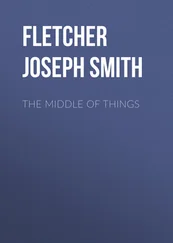I THINK: PERHAPS THERE’S A LIGHT INSIDE PEOPLE, perhaps a clarity; perhaps people aren’t made of darkness, perhaps certainties are a breeze inside people, and perhaps people are the certainties they possess.
JOSÉ, AFTER HE GOT MARRIED, didn’t talk to his wife straightaway. They walked to the farmstead without holding hands, in silence. Across the expanse of the sunlit plains José and his wife trod, and beads of sweat trod over them, on their skin. Across the expanse of the sunlit plains went José and his wife, dressed as bride and groom, illuminated. When they reached the farmstead and the house, José didn’t remove his suit and his wife didn’t remove her dress. He put the black sheepskin on his back, grabbed his staff, and went to tend the sheep. She donned a rag that served as an apron and went to wash two already washed plates. At night they slept in the same bed but didn’t touch each other.
They continued to sleep in the same bed, because they were married and married couples always sleep in the same bed, because they had only one bed, because only one bed fit in their bedroom, but they didn’t touch each other again. And summer came. The passing days were long, as days full of sun and still with hope naturally are, with a vast and ordered sky whose blue has the depth and simplicity of being the blue of sky and sun and continued hope. The passing days were long, and José, in those days, was a new man with a serene face, hoping and yearning for a future, yearning each day for the next day. José’s wife continued to harbor a silent sadness, the sadness of a deep well containing all sadness; she continued to care for their house and for the rich people’s house. And with the door locked from inside and the keys in her pocket, she would sit for entire afternoons listening to the voice shut up inside a chest. And in these moments she almost let herself smile. She looked sad to José, but he didn’t know what to think. She looked sad, but he couldn’t tell if she was tired or sick or nervous or angry or indifferent or sad. She looked sad, but he got used to the mystery of her sadness and didn’t wish to change her. He was very fond of her. Sometimes, among the sheep, he would single one out, or he would single out a tree when among trees, and he’d call it by his wife’s name. Out loud. And he’d see that name scatter into the air and vanish in the clarity. Alone in the fields, he’d repeat that name and see it hover for a few moments. He’d repeat it and stand still, smiling. He’d sit down in some shade, smiling.
On the last night of summer, as he’d always done on the last night of each season since turning eighteen, José went to the house of the blind prostitute. Prostitute was a word left behind by a traveler and used by the townspeople to baptize the blind prostitute. It was a strange and difficult word that twisted around the tongue and that the townspeople only used when referring to the blind prostitute, but it was an apt word, because it wasn’t the word whore. The blind prostitute wasn’t a whore, she was a woman, sad because blind, who did favors since there was nothing else she could do. Her mother had been just like her and her grandmother had been just like her, but it was said that her great-grandmother had been a fickle baroness who abandoned her daughter among some brambles. Abandoned her for being a girl. Upon seeing her for the first time, still smeared with her blood; upon seeing her and regretting she wasn’t the boy whom she had imagined and for whom she’d bought a complete set of baby clothes in Lisbon; upon seeing her for the first time, she’d said she looks like a whore. People say that the scars from her grandmother still mark the womb and back of the blind prostitute. They say that the thorns blinded her grandmother and remained inside her to blind whatever daughters she might have. The blind prostitute’s mother had been blind. And the blind prostitute had a blind daughter. A one-year-old girl who rarely went outside. Pretty because tiny, and blind. The blind prostitute wasn’t a whore, and José went to visit her on the last night of summer. She lived on the Rua da Palha, and when she heard three knocks on the door, she was already expecting him. For his sake she had lit a very faint kerosene lamp, and through the darkness tainted by a dim clarity she led José to her bedroom. Through the open door of the bedroom the weak lamplight entered even more timidly, and by that light José could make out the body of the baby lying under the sheets. It was the tiny body of a girl with long black hair and, beneath her missing eyelids, the cavities of her eyes. Perhaps she was sleeping. Without talking or making noise, they got undressed and lay next to the little girl. They made love, each one probing the other’s body, becoming the other’s body. José washed himself in the basin that was in the kitchen and left money on the rustic wooden table. On the road to the farmstead, under the night sky, José thought of the blind prostitute’s eyes. They were two deep cavities of smooth flesh the color of bright blood. Two blood-colored cavities in the face of that woman.
The next day, the first day of autumn, José, when he woke up, wanted to see his wife’s eyes and to see her get dressed. Lying down, he noticed her belly. He got close and ran his hand over her belly. It was a hard mound, rising above her navel and making his hand rise as it passed over it. They looked at each other, and the sun that was in the morning entered the bedroom. José tended the sheep and went into town. In his sister’s backyard he sat down next to his father. They sat there all afternoon, and in a moment no different from the others, he announced I’m going to be a father. José kept looking at where he was looking. José’s father kept looking at where he was looking. The afternoon slowly hung there, indifferent to all this.
I THINK: PERHAPS THERE’S A LIGHT INSIDE PEOPLE, perhaps a clarity; perhaps people aren’t made of darkness, perhaps certainties are a breeze inside people, and perhaps people are the certainties they possess.
THAT SAME WEEK MOISÉS MARRIED THE COOK. Both were more than seventy years old, but both conserved a pungency salted by many summers, by seventy summers. Elias was his brother’s male witness. The other witnesses were paid. No one was invited to the wedding. Moisés and the cook slept in the same bed and touched each other. Winter was already bringing a breeze that, in the early morning, could be called chilly, when Moisés brought home a basket full of oranges. With remarkable dexterity Elias peeled oranges with just one hand, using one finger to secure the rinds, another to remove the seeds, and a third finger to hold on to the seeds, and he separated the segments one by one, eating them with evident relish. The cook looked at them more intently than usual, but they suspected nothing. On the dining table flowers cut out of carrots and tomatoes blossomed from inside a lettuce salad, flowers that sprouted among the lettuce leaves and formed a bud that opened up in a magnificent flower. On the platter a little woman with green-pea eyes and hair made of bread tucked a baby boy into a bread-soup cradle. Moisés ate the little woman, carved out of a chicken breast, and Elias ate the cradle and the baby boy, carved from a chicken leg. That night, as the three of them went to sleep, the cook assumed a serious expression and said you’re going to be a father. A smile slowly formed on Moisés’s blank face. A smile formed on the cook’s stern face. And not for a moment did they remember that they were more than seventy years old.
AS THE JUST-ARRIVED SHEEP greedily ripped into the grass with their teeth, filling the air with the sound of stubble being pulled and torn, I sat down under the big old cork tree. I stretched out my legs, and the sheepdog looked at me with a mournful gaze. A melancholy gaze that didn’t last more than a fraction of an instant, a gaze that told me everything’s going to end. A gaze that told me you’ll go home to the farmstead, as we do every day, but the night will pass more slowly; you’ll look over your shoulder at the last twists and turns of the thrushes in the sky and at that moment you’ll want to be a thrush; your boots will feel heavier and the earth heavier, to dissuade you from going. A gaze that told me when it’s time to drive the sheep back to the farmstead, you won’t feel like getting up from under the cork tree, you’ll feel like curling up and pretending that you don’t exist and that the earth has swallowed you and that you’re no longer responsible for anything. A gaze that told me it will be hard to cross the threshold of the door to your house, you’ll look at the just-fallen night inviting you to be black, to blend with it, and to become perhaps a star.
Читать дальше












